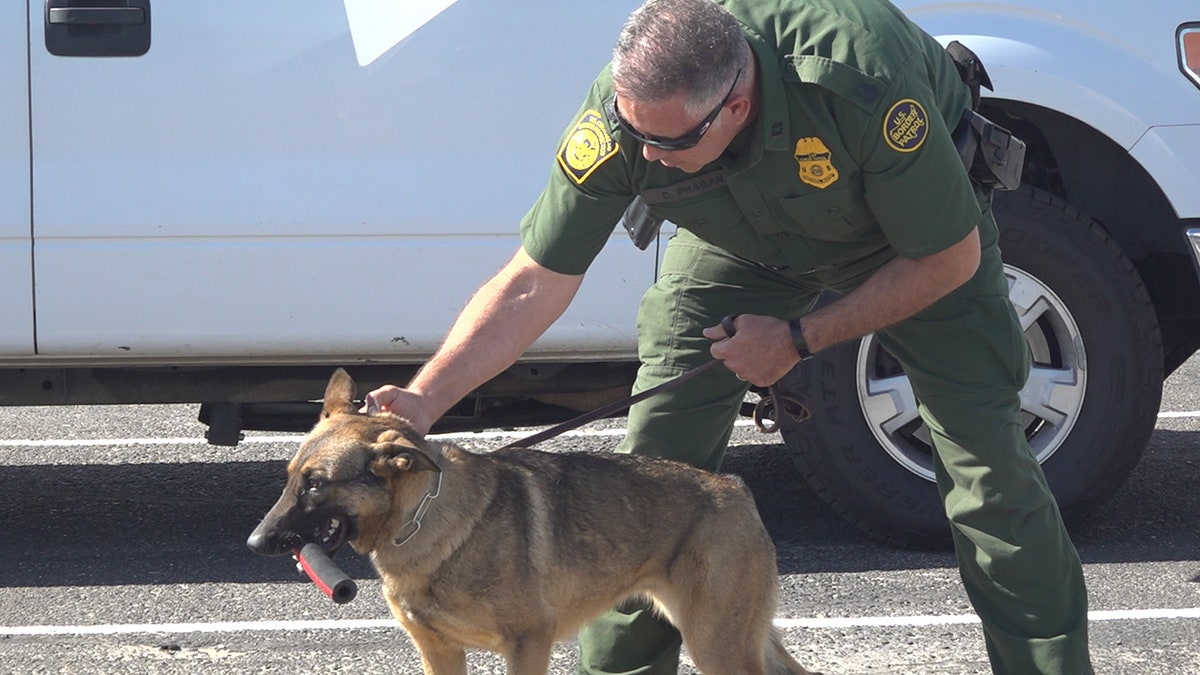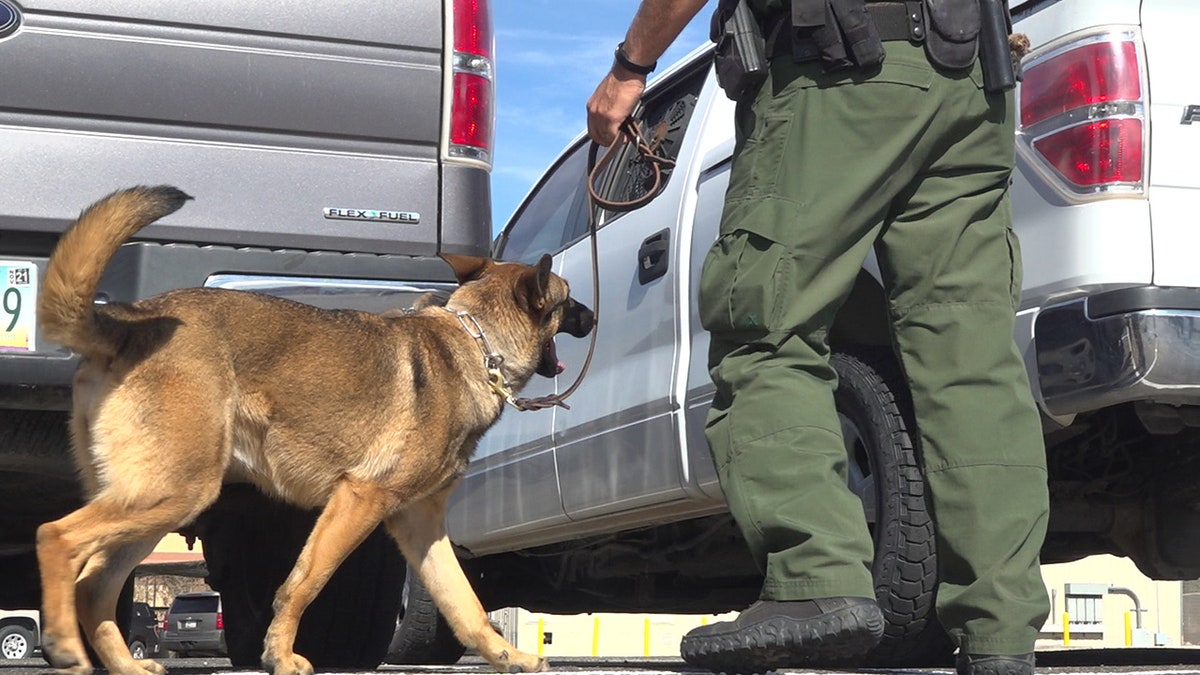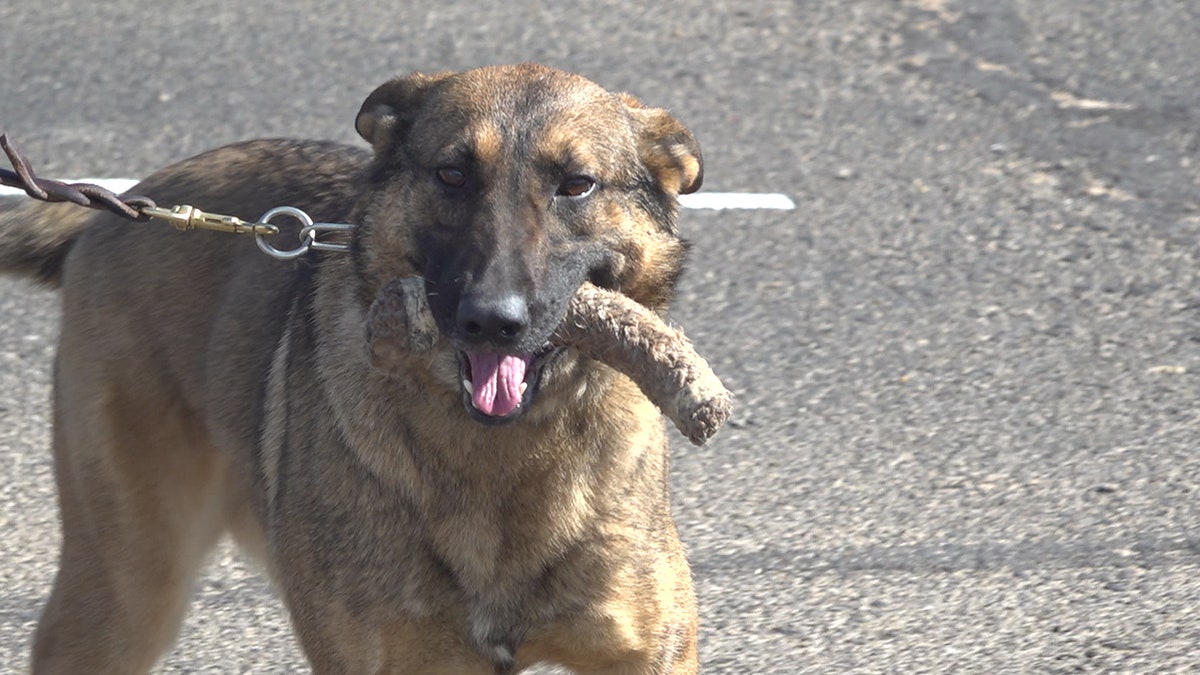Border patrol K-9s head back to class
Border Patrol canines are getting back to work after their training classes were canceled for months.
YUMA, ARIZ.-- – Border Patrol K-9s are getting back to work after their training classes were canceled for months due to the coronavirus pandemic. Over the last year, as K-9s started to retire, new teams began to dwindle, so agents knew they had to quickly get classes started again.
Typically, Border Patrol handlers would head to the Canine Center in El Paso, Texas, to pick up and train with their new dogs, but all classes were canceled when the pandemic broke out in March and as cases began to spike in the city.

David Phagan has traveled to El Paso several times in the past to train with his new K-9 partners. He just retired his last dog at the age of 12 and is now training with his new German Shepard Amanda, marking his 5th partner in his 19 years of working at the border. (Stephanie Bennett/Fox News)
"We actually had one point where we had a class start and three hours after they got here, everybody had to get sent home because the COVID cases had risen so much in the El Paso area," said Michael Lopez, a course developer instructor at the Canine Center El Paso.
CLICK HERE FOR FULL CORONAVIRUS COVERAGE
To keep enough working dogs at U.S. borders, Lopez has continued to teach new K-9 recruits in El Paso, but is now holding the human classes in Arizona, driving the dogs across the Southwest to finish their training with their new handlers.
Lopez said he checked with several Border Patrol sectors across the country to see if they could use their facilities to continue these classes. Tucson, Yuma and Laredo all agreed.
"We’re playing it by ear and doing everything we can to make sure we can get these teams out there and we just want to actually say how grateful we are for these different sectors to allow us to do the training there," Lopez said.

Phagan's K-9 Amanda, as well as the other dogs in the Yuma program, are trained to find concealed people and detect controlled substances like cocaine, heroin, methamphetamines, ecstasy and marijuana. (Stephanie Bennett/Fox News)
Now eight agents from across the country have spent the last five weeks learning with their new dogs at the Yuma sector. Luckily for seasoned handler David Phagan, that’s in his own backyard.
"You meet handlers from all over the country and different environments and you learn things and pass on information to other people," said Phagan.
Phagan has traveled to El Paso several times in the past to train with his new partners. He just retired his last dog at the age of 12 and is now training with his new German shepherd, Amanda, marking his fifth K-9 partner in his 19 years of working at the border.

Once they’ve passed the test, they’ll get to work. Many will be patrolling checkpoint stations. (Stephanie Bennett/Fox News)
"Everybody loves dogs, you know, that’s the biggest thing is I love working with the animals … it’s just something that’s hard to explain unless you’ve actually done it and once you do it, it's really hard to stop wanting to do it," Phagan said. "I expect this to be my last dog before I retire, but I really enjoy it."
CLICK HERE TO GET THE FOX NEWS APP
Amanda and the other dogs are trained to find hidden narcotics and people. Once they’ve passed the test, they’ll get to work, many heading to checkpoint stations.
"They're amazing, this is a job that, in my opinion, couldn't be done without dogs. They're a very useful tool," Phagan added.
The Yuma class will wrap up by the first week of February and the next team will move to Laredo, Texas. Lopez says they will continue to export the classes around the country until the number of COVID-19 cases in El Paso decreases.











































